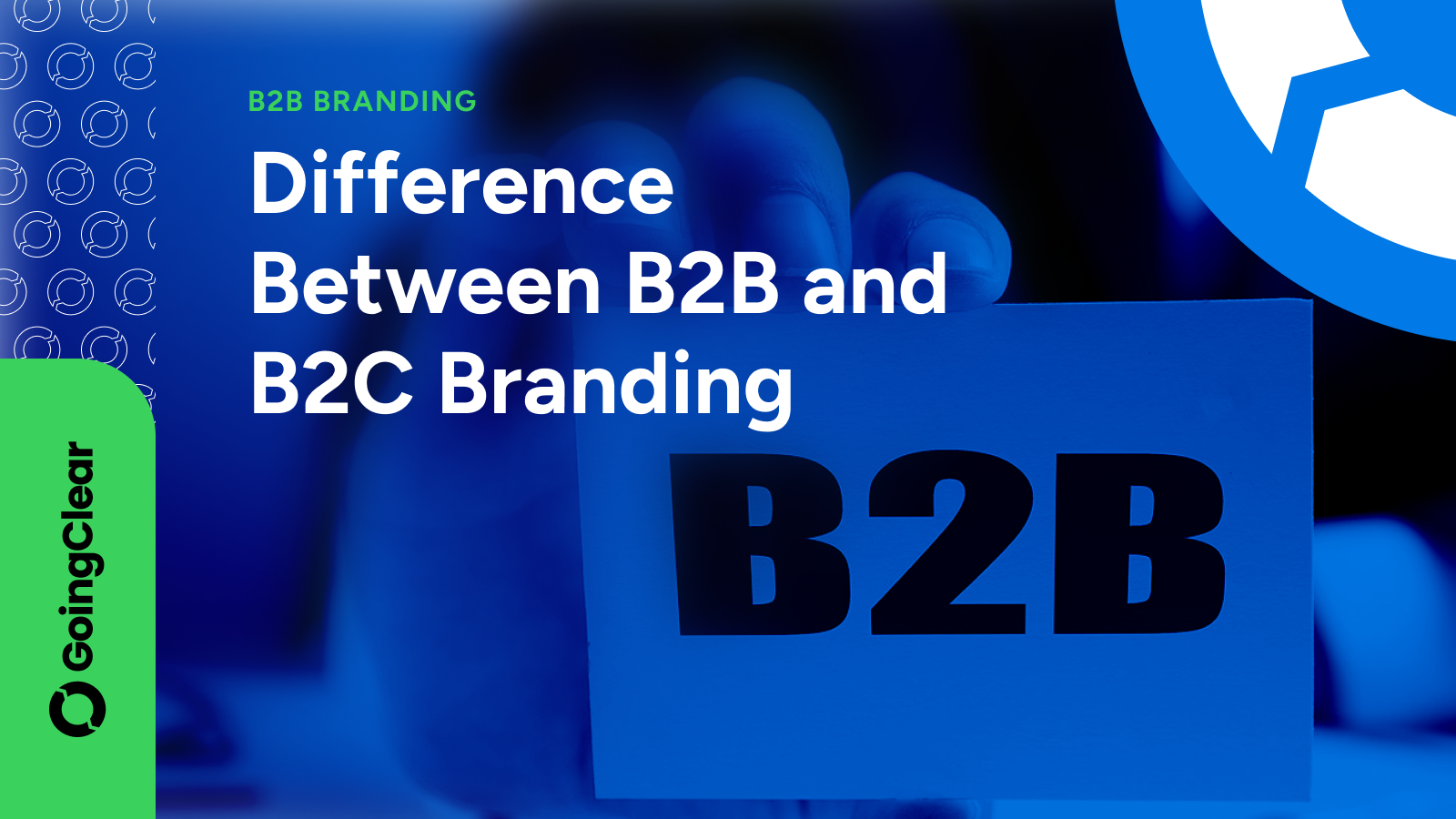Difference Between B2B and B2C Branding

Brand strategy, in general, has a few basic frameworks and principles to be effective, and they are pretty similar when it comes to B2B and B2C branding. However, there are a few differences that are quite notable and should be taken into consideration when coming up with a new B2C or B2B brand strategy.
These differences mean B2B and B2C companies must use different strategies when they plan their marketing efforts. In this article, we’ll take a closer look at the differences so you have a good understanding of how to proceed with your company’s marketing strategies.
Customer Motivation
One of the main differences between B2B and B2C branding is the motivation that drives customers. B2B purchases are driven by customers’ reason and logic. They’re buying based on numbers, statistics, and facts.
B2C purchases, on the other hand, are motivated mainly by emotions like attraction, personal preferences, status desire, and sometimes even fear. That’s why it’s important for B2C branding to have a heavy focus on evoking emotions.
Customer Needs or Wants
The wants and needs that B2C customers have are very different from those of B2B customers, which is why a difference in branding is necessary. B2B customers are encouraged by a specific need, like software that will solve their inter-company problems. These customers will not make impulsive decisions and spur-of-the-moment purchases aren’t a thing.
B2C customers are, in general, encouraged to make a purchase because of their personal wants or needs. For these customers, impulse buying is definitely a thing—this explains why candy and small items are near the checkout aisle in supermarkets.
Buyer Persona
The B2B buyer persona and the B2C buyer persona are two very different things. Typically, a B2B persona will be more about their job role and the kind of industry they’re working in instead of the individual person and their personal likes or beliefs.
B2C buyer personas are much more personal and focused on elements like demographics and individual characteristics. Their gender, age, marital status, household income, and spending habits are important information when planning marketing and branding strategies.
Product Information
When it comes to product information regarding B2B and B2C branding, the main difference is benefits vs. expertise. For B2B customers, it’s essential that they have enough information and facts so they know about the solution you’re offering them. Your branding needs to convey expertise and instill trust in potential customers.
For B2C branding, the focus must be on benefits. The buyers don’t necessarily need to have a lot of info about your brand, but they must know why they should make a purchase from you, i.e. how it will benefit them.
Sales Cycle
For B2B companies, the sales cycle is far longer than it is for B2C companies. This is because the purchase cost is usually a lot higher. There is also a lot of decision-making to be made on the customer’s side. B2C customers can decide to purchase something in just a few seconds, so the sales cycle can be very short.
Connect With GoingClear & Advance Your Digital Growth!
GoingClear has a dedicated team of in-house of marketers, developers, strategists, and designers in Boston, MA. We are experts when it comes to all things marketing and SEO. We can bring your B2C or B2B brand strategy to the next level thanks to our extensive experience. Get in touch today so we can talk about your project!
